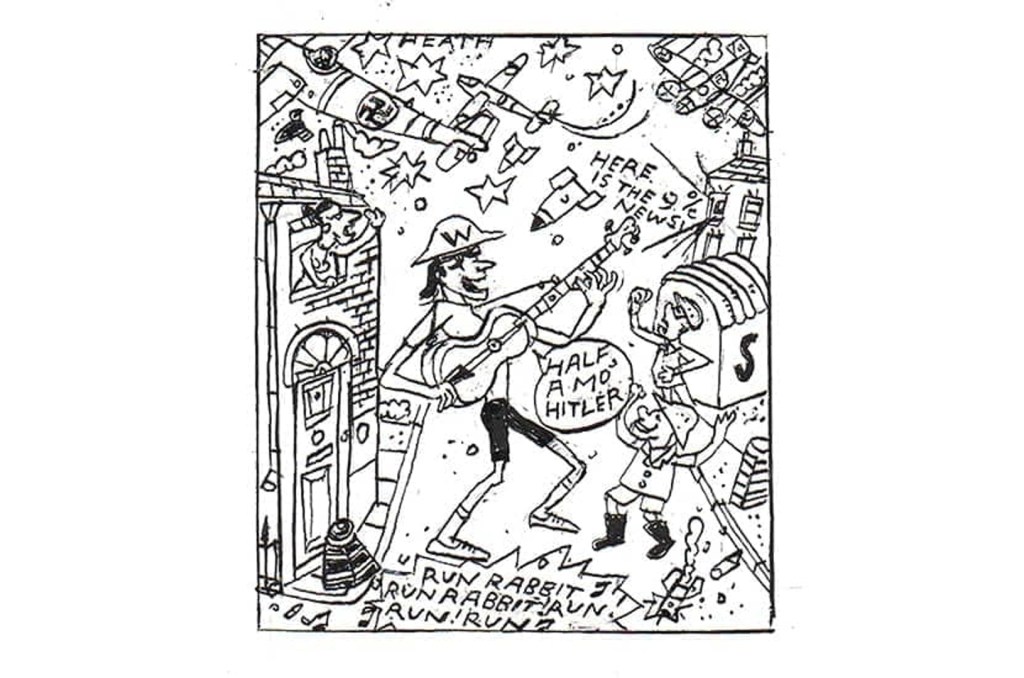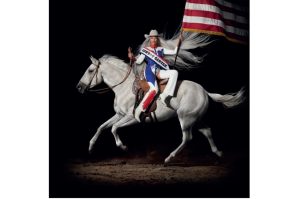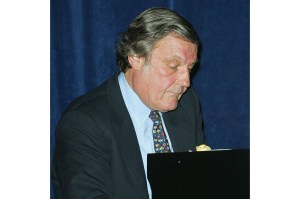I’ve lived in Chelsea for the past thirty-five years. Since 2002, I’ve photographed everything I find interesting here — churches, streets, door knockers and pub signs, plus two old Chelsea pensioners chatting on a bench with their medal ribbons and rank pinned to their scarlet coats. I’ve recently finished my project and added these 1,800 photographs to the historical research I’ve done about Chelsea, which is now sitting safely on my bookshelf.
My love of photography comes from my Uncle Jack. When he returned home at the war’s end, he had a Leica camera, which he got by trading his cigarette rations with an Italian civilian. He gave me his old Brownie box camera. As a child, I would wander around my local neighborhood — Penge, in south London — always looking for a quiet, still moment when my subjects were unaware of me taking their photo.
I was born in south London, on the wrong side of the street, as they say — dirt poor. By 1940, our family was evacuated to Nottingham, a city where we knew no one and where we were forced to stay with a family of strangers in their home. I talked with a Cockney accent, which made it difficult for me at school. A stranger in a strange land. I played truant, got caught and was put on a train by myself, aged five, to live with my gran back in London. Gran showed me the tools of resilience that would stay with me my whole life. She encouraged me to keep a diary, collect cards that came in the Players Weight cigarette packs that my grandfather smoked, and taught me how to use the kettle to steam off the postage stamps that arrived on the letters my mother would write to us. Gran encouraged me to keep these treasures in a safe spot and in chronological order. I kept them in the bedroom that I shared with my grandfather and his disabled friend who lived with us. My need to keep things in order and my inner desire to record history continues today — I keep a diary and have created my own archive with a system that cross references and interlinks all information together; a historical reference for most of my projects.
Music is one of the hardest things to write about. After all, how does one write about falling in love? My gran enrolled me in the church choir and saved up enough money for piano lessons. I studied the clarinet at school, but didn’t really take to it. It was only when I was eight that my love of music really developed after my aunt dragged me along to a dancehall (she was “babysitting” me). In the hot, low-lit, smoked-filled room, I experienced for the first time music vibrating off the walls from a live band. The hall was packed with men dressed in their uniforms, twisting and turning the ladies around doing the Jitterbug. At that moment I knew that I wanted to be in a band when I grew up.
That dream arrived in 1962, when I became a founding member of the Rolling Stones. For thirty years we made some incredible records together and toured the world. In 1993, I hung up my rock’n’roll shoes, became a family man, and pursued other artistic endeavors. In 1997, I decided to get back into music and created the Rhythm Kings, purely for the pleasure of playing again, and enjoyed it for the next twenty years. Unfortunately, the past eighteen months have been hard for musicians. My last live gig was in February 2020. The pandemic has been a tough time for everyone. After thirty-two successful years, my South Kensington restaurant, Sticky Fingers, also had to close.
Loss reminds me how little time we have on this planet. What I tend to do in difficult times is focus on work. Since the first lockdown last year, I’ve finished two historical books and one about growing up during the war. I’ve been able to enjoy time with my family and work on my archive. I’ve also had time to return to metal detecting in the fields and enjoy that connection to nature. And I’ve started to work on a solo music project. Time is a gift not to be wasted.
The only thing harder than writing about music is writing about the loss of loved ones. I lost so many dear friends last year — Terry O’Neill, Mary Wilson, Johnny Gold, Leslie Bricusse, and, of course, dear Charlie Watts. Charlie was my musical partner. People called us “the straightest rhythm section in rock ’n’ roll.” I’m still half-expecting him to come knocking on my front door for our usual cup of tea. I miss that knock.
This article was originally published in The Spectator’s February 2022 World edition.


















